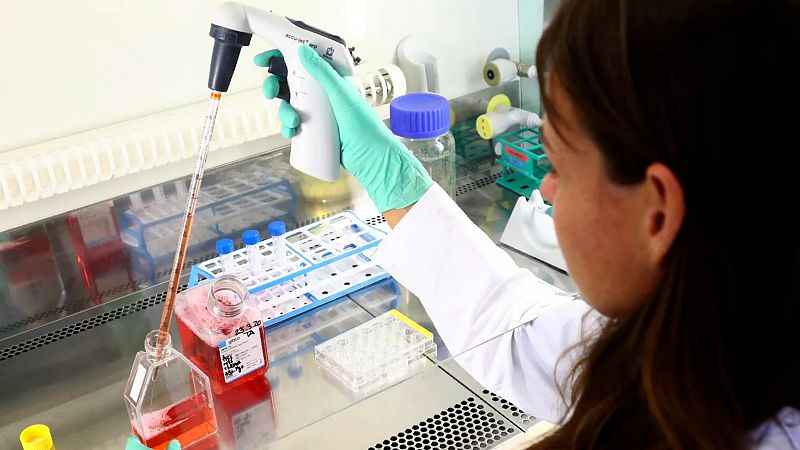
The Trump administration has frozen funding for most collaborations between medical researchers in the United States and abroad, with ripple effects to come for thousands of Europe-based scientists.
The US National Institutes of Health (NIH) – the world’s largest biomedical research agency – cited a lack of transparency around how its money is spent overseas and the need to protect US national security in the policy issued on Thursday.
The NIH allocated more than $35 billion (€33.6 billion) to universities, medical schools, and other institutions in 2023. Most of that money is spent in the US, but organisations there often partner with research teams based abroad.
These international partners are considered NIH sub-awardees, and are now in the new policy’s crosshairs.
In 2023, the most recent year with data available, there were 4,800 NIH-funded projects with collaborators in Europe, US government data shows, though that doesn’t necessarily mean they are all active.
The projects span everything from HIV vaccine development to discovering how certain genes raise the risk of obsessive-compulsive disorder (OCD).
The policy immediately eliminates all future grants, including the possibility of renewal for ongoing projects. The NIH plans to replace the sub-award programme with another funding mechanism by late September.
The agency said that it is not revoking funding for current projects that have foreign partners, but left open the possibility that it could do so in the future.
For Maria Yazdanbakhsh, who heads the Leiden University Center for Infectious Diseases in the Netherlands, the policy creates uncertainty for the future of international collaboration on medical research – such as her NIH-funded project working toward a more effective malaria vaccine.
“We were going to apply for more funding to continue with the exciting outcomes of the project,” Yazdanbakhsh told Euronews Health, adding that “we will be affected in the future, where promising work is halted and is not taken further”.
Going forward, Europe-based researchers can apply for direct funding from the NIH, which is rarely awarded to scientists outside the US. The agency said this will enable it to track how the money is spent more closely.
This fiscal year, the NIH is directly funding only 17 Europe-based projects, down from 129 last year; 10 are based in the United Kingdom, while there are two each in France and the Netherlands, and one each in Sweden, Finland, and Austria.
For now, these direct grants are not on the chopping block, but researchers say they fear they could be next.
“There are far-reaching consequences,” Nicola Stonehouse, a virologist at the University of Leeds studying enteroviruses on an NIH-funded grant, told Euronews Health.
“How easy it's going to be for people outside of the US to be involved in these [medical research] projects going forward, that's an open question,” she added. The decision “really damages international collaboration”.
Dr Alain Fischer, an immunologist and emeritus professor at the Collège de France, noted that these sub-awards typically aren’t for much money, telling Euronews Health the change is “more symbolic than anything else”.
Scientists are used to working with peers from other institutions and countries, often without any money attached, Fischer said.
But the NIH sub-awardee cutoff will present “an additional hurdle” that will squeeze international collaboration at a time when securing funding is already highly competitive, he said.
The foreign funding freeze is the Trump administration’s latest move to reshape the country’s scientific establishment. In recent months, the NIH has cancelled hundreds of grants and cut billions of dollars in overhead costs for biomedical research, which has been challenged in court.
The NIH and its parent agency, the US health department, did not respond to a Euronews Health request for details on how the new policy will affect Europe-based scientists in particular.
But in a statement, NIH chief Dr Jay Bhattacharya cited a recent audit by the US government watchdog, which found oversight-related problems for 36 per cent of sub-awards issued outside of the US.
He said the change will “enhance our capabilities to provide effective oversight and management of these financial obligations in support of rigorous scientific research”.
Meanwhile, Tazdanbakhsh called on European Union policymakers to take steps to minimise the impact of US cuts on European scientists.
“I wish the [European Commission] would find mechanisms to mitigate such risks,” she said.







